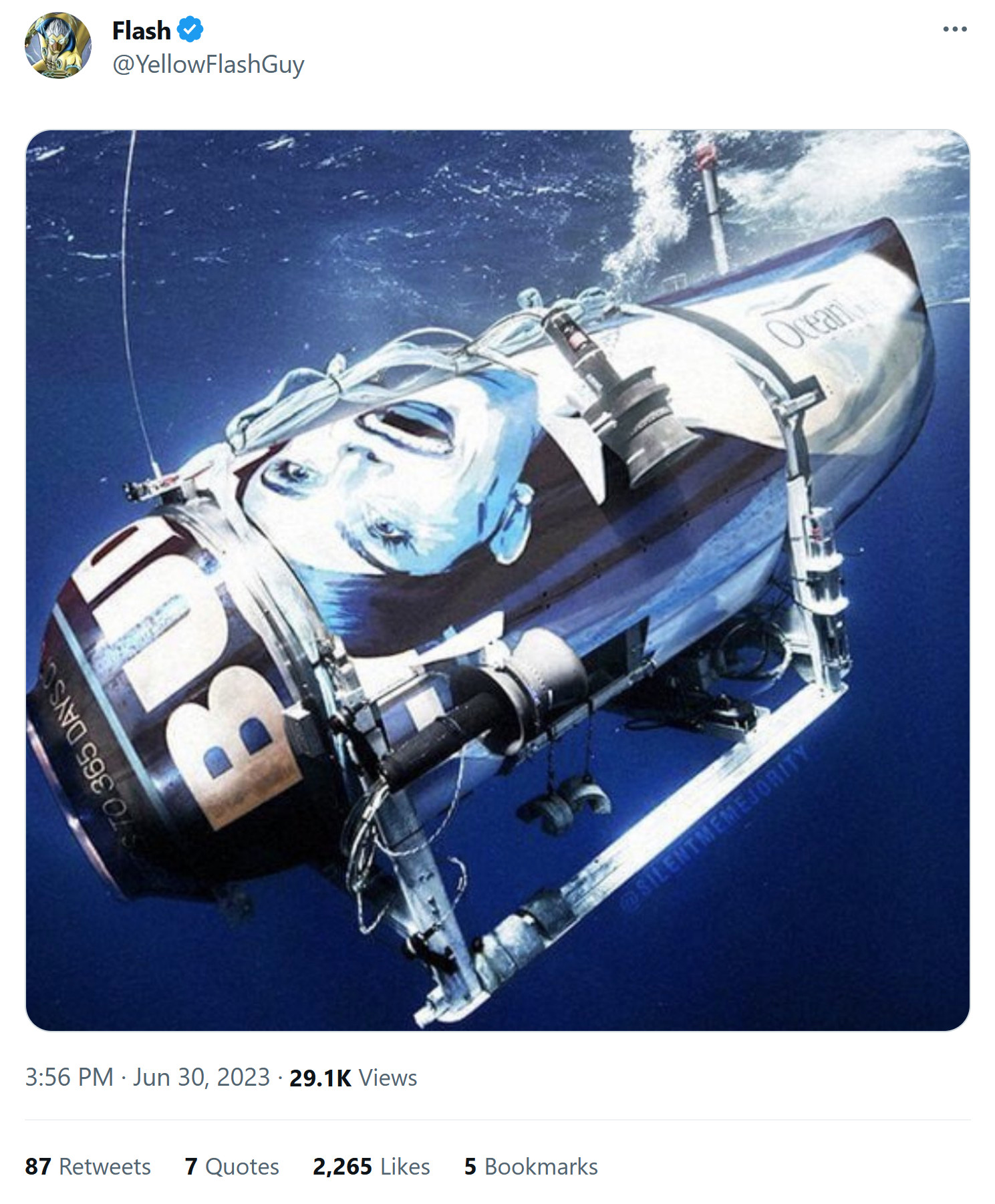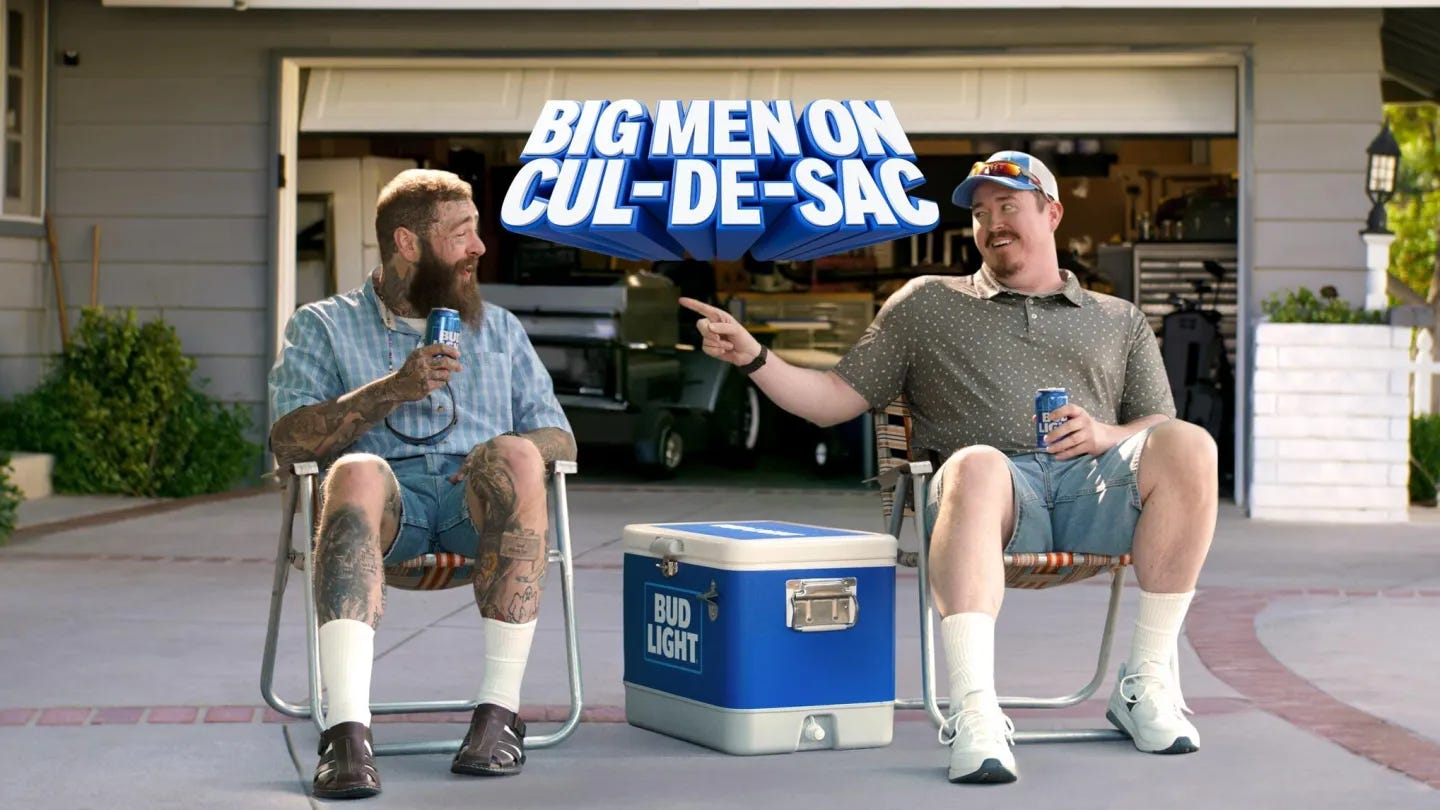As you enjoy the Super Bowl on Sunday, pay special attention to one of the 30-second ads that will be airing during the time-outs.
The ad, which features Shane Gillis, Post Malone, and NFL great Peyton Manning having fun at a wild barbecue, fueled by bright-blue cans of Bud Light beer, is no ordinary TV commercial. With its almost cartoonish celebration of masculine excess, the spot communicates two conventional beer-commercial messages: Bud Light is fun, and Bud Light is for guys. What makes it notable, though, is a third point, one it communicates only by implication: Bud Light is really, really sorry.
Bud Light is still trying to make up with the customer base it alienated on April 1, 2023. On that day, a brand that had been the top-selling beer in America for over two decades launched a social media campaign that would rock its customers, and not in a good way. Starring a transgender activist, Dylan Mulvaney, it celebrated Mulvaney’s first year of “girlhood.” Bud Light even sent Mulvaney a personalized can to mark this milestone date in Mulvaney’s transition from biological male to transgender woman, which millions had already followed on Instagram and TikTok.
This was not an April Fools’ Day prank as some believed, but a serious effort by the world’s largest beer company, Anheuser-Busch InBev, to “rebrand” its product.
For Bud Light, the consequences were no laughing matter. Consumers immediately recoiled and targeted the beer with one of the largest boycotts in recent history. Bud Light sales declined 11 percent that week compared to the previous year. By April 15, 2023, sales were down 21 percent. In the ensuing months, the company shed billions of dollars of shareholder value, laid off hundreds of employees across the Anheuser-Busch ecosystem, damaged its reputation, and plunked itself in the middle of a highly contentious political issue. Almost every Anheuser-Busch stakeholder—wholesalers, employees, customers, and shareholders—lost trust in the company.
Data would later confirm that, although conservatives were most outspoken about the Mulvaney campaign—Kid Rock posted a video of himself shooting cases of Bud Light with a rifle—millions of consumers from across the political spectrum were offended by it, too. Nearly two years later, Bud Light has yet to win beer lovers back; sales remain roughly 40 percent below where they were before the boycott began. Some analysts say the beer might never recover.
I don’t drink very much beer these days, and I was never Bud Light’s target demographic, but it seems like going from Mulvaney to a another freakshow – a guy with a face full of hideous tattoos – may be overcompensating just a little bit for their previous error. Or perhaps choosing Malone as a spokesman may be a would-be Don Draper’s idea of continuing the intense loathing that Ivy League execs at Bud Light still harbor for their core customers.
Related: Will the Super Bowl Ads Be Woke? “We might yet see a resurgence of woke. That coalition is down — but probably not totally defeated. I do, however, think that most advertisers know the winds have changed, at least for now. But mark my words: I’d bet on at least one major company stepping on a rake. Someone is going to Jaguar themselves on Sunday night.”


